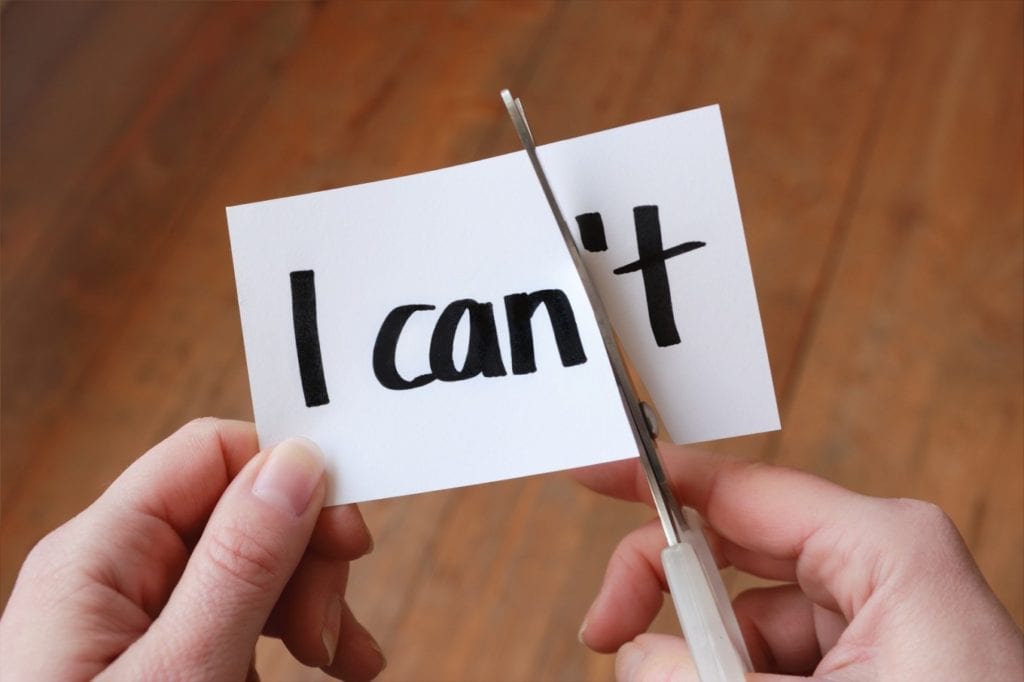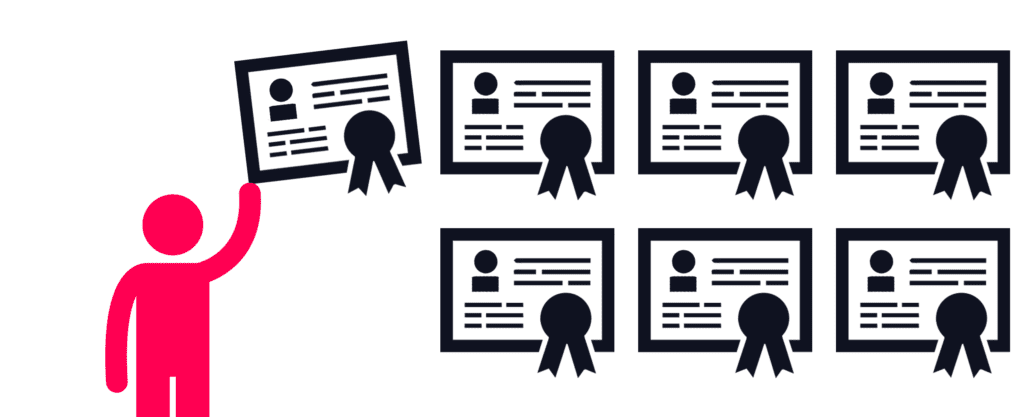A job interview is a two-way street. They look at you and you look at them. That is why you should not feel inferior simply because you are a small human and they are a big company. A big company is made of humans just like you.
So let’s start with the correct mindset.
What Message are you Sending?

It is essential to monitor the message you are sending in your attempt to impress an interviewer. If it is ‘please pretty please hire me,’ then no, that tactic is not going to work. Hiring managers are interested in hiring the best professionals based on their ability to solve the company’s problems, not based on their begging skills.
Liz Ryan, Forbes contributing author and career expert, shared her observations from numerous job interviews she has conducted over many years. According to Ryan, “You don’t want to hire the person who begs for the job most convincingly. Any company that is looking for people like that to hire is an unhealthy organization.”
Now, let’s quickly review the main signposts that can guide you to do well in an interview.
Confidence

From the first conversation with the HR manager on the phone to the last handshake at a face-to-face interview, you should remember who you are and what you bring to the table.
If you see yourself as an employee who can contribute their knowledge, brainpower, skills, and time towards the positive development of the company, your confidence level is good. If your train of thought is that you would be very lucky to get the offer, your confidence is pretty low.
Ryan says, “Which candidates made our hearts beat faster? The candidates who knew their own worth, of course!”
Recruiters are not confident coaches. They want to see candidates who already did their homework and came ready to sparkle.
However, don’t confuse confidence with arrogance. Don’t come to an interview thinking that everybody owes you something. Come to share your ideas and thoughts about the job. And if you do it with grace and dignity, you will be successful!
Crash Course in Confidence

Confidence is based on your professional competence and achievements. However, you may have all the ingredients to be confident and yet fail to feel so. In such a case, you need a quick crash course on how to get confident in 10 minutes.
To achieve this, look through your career and remember all of your most impressive accomplishments. You’ve probably already done this when you wrote a resume and a cover letter.
You don’t need to be a CEO for your contributions to matter to the profitability of the company. Every employee’s good work is part of the overall success of the company, and hence an important factor. So build up your confidence by reminding yourself of the value you bring. Don’t see yourself as a beggar, even if you have spent many months looking for a job and feel quite desperate.
Physical Composure

According to a 2013 Job Anxiety Survey conducted by Everest College, it is very natural to feel anxious and nervous before and during a job interview.
To cope with mounting job interview anxiety, reduce factors that could make you agitated.
- Get plenty of sleep before an interview
- Get a nice meal but don’t overeat (otherwise, you’ll feel lethargic)
- Avoid caffeine
- Wear only comfortable clothes to an interview
Additionally, take actions that can have a positive effect on your performance at an interview.
- Have a brisk walk to get to an interview location. It will increase your blood circulation, produce more oxygen in the blood and stimulate neural connectivity, making you think better and faster.
- Do a breathing exercise before stepping into an interview room. Just a few deep breaths.
- Release anxious energy. Take a slow stroll around the office, if possible. Or at least wiggle your toes inside your shoes – a discrete but rewarding activity.
Be Prepared

Do your homework and find out as much information as possible about the company and the hiring manager, business owner, marketing director, orF whoever is going to talk to you at an interview. By researching your potential employer, you get a basic idea of who they are and what they may ask you.
Next, bring all the documents you may need, such as your resume and cover letter. If you are interested in some cover letter designs to check out getcoverletter.com. Hopefully, you did your best the first time around, but if you feel that you left something out or came across a more effective graphic designer cover letter sample, bring it to show at the interview. Not all employers will request to look at your application documents at an interview, but it’s better to be on the safe side.
You may also need:
- business cards
- references
- licenses
- certifications
Obviously interviews for technical positions differ from creative ones. But regardless of the position you are seeking, a majority of employers and recruiters pay attention to the firmness of your handshake, how confidently you behave, and how well-mannered you are.
During an Interview

If you have done your homework and feel confident, you will easily impress during an interview by giving non-scripted answers and by being easy-going and open.
If, however, you still feel too robotic to answer questions spontaneously, remember that you don’t have to say something immediately. It is perfectly fine to collect your thoughts and give your answer after a short pause.
Types of Interviewers
Is there a clear-cut list of things to say to impress in a job interview? Probably not. It is difficult to give a template for a job-winning interview simply because too many factors come into play, including the type of job and who may or may not be involved in the interview. Executives, external recruiters, and hiring managers all have different strategies, styles, and requirements.
Executives appreciate risk-taking skills, leadership, and team player mindset. For example, Tom Szaky, chief executive of an innovative recycling company, TerraCycle, says that he relies largely on his gut feeling when he conducts job interviews. Like many employers, Szaky loves asking ‘behavioral questions’ such as, ‘How you behaved in a conflict,’ ‘tell about a challenging project you did,’ and ‘did you take on leadership roles?’ As a result, his interviews usually last 5 to 10 minutes. However, this is not necessarily a common hiring strategy.
External recruiters have less leverage, so they stick to the protocol and ask more traditional questions which we’ve listed below.
Often the list of questions asked by a hiring manager is the same as the external recruiter, as their aim is to see whether you are as great as your resume promised. But since hiring managers will work with you directly, they also consider personal traits too.
In any case, be prepared to answer the following questions.
The Questions Usually Asked

- Can you talk to us through your resume?
- Why did you choose this line of work/profession?
- Why did you choose this particular company/job?
- Why you? What skills/experience do you have that would make you a good candidate?
- What are your weaknesses/strengths?
- How would you see yourself in 5 years’ time?
How to Impress on a Phone Interview / Online
Many companies use phone interviews to further filter candidates after the resume stage. The general advice on taking a phone call is the same – remain calm and confident, demonstrate interest, and confirm the core skills announced in your resume.
A Few Quick Tips on How to Win an Interview

Be Passionate
Hardly any employee doesn’t want their staff to be passionate about the company. Bosses commonly want everyone, from janitors and assistants to top management, to gush about what they do and how they propel the business to succeed.
Be Honest
You may think that asking you about your weaknesses is a silly question. But employers often judge your ability to react and act under pressure by such ‘silly questions.’ Just give such questions some thought beforehand.
Be Polite
To wow an interviewer, you just have to have basic interview skills. So what are basic skills? Nothing more than simple social etiquette. You’d be surprised how many entry-level specialists lack social etiquette. Just don’t use social media, take calls or text during an interview, and you will become a strong competitor for the open position.
 Imagup General Magazine 2024
Imagup General Magazine 2024



